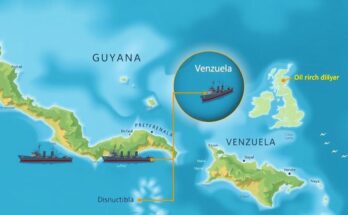Prime Minister Gustavo Adrianzen has announced a deregulatory shock initiative to eliminate bureaucratic obstacles in Peru, enhancing productivity, competitiveness, and efficiency in public management. The plan includes phased reforms by the Ministry of Economy and Finance, despite resistance from some government sectors. Adrianzen emphasized the importance of collaboration with municipalities and Congress to ensure successful implementation of these reforms.
Prime Minister Gustavo Adrianzen announced initiatives aimed at delivering a deregulatory shock to enhance Peru’s economic growth by eliminating bureaucratic obstacles. His administration’s strategy is to increase productivity, competitiveness, and efficiency within public management.
During his address, Adrianzen stated, “We must continue driving economic growth because we have the potential to grow at even higher rates. These measures are aimed at achieving that goal.” The Ministry of Economy and Finance aims to implement initial reforms by July, followed by phased engagement with all levels of government.
Nonetheless, Adrianzen highlighted some resistance within government sectors concerning these reforms. He stated that excessive bureaucracy has impeded development and urged ongoing efforts to mitigate it, particularly in crucial sectors like health and education. He remarked, “You wouldn’t believe how much is required for someone to invest in education, for example.”
The Prime Minister indicated that this deregulatory shock intends to streamline processes for investors, eliminating high fees and lengthy procedures for obtaining licenses that stifle growth. He emphasized, “This measure is a clear response to the need to untangle the bureaucratic web that harms us so much.”
In addition, Adrianzen called upon municipalities and Congress to actively participate in this reform initiative. He mentioned the importance of meetings with key leaders to foster collaboration, while also noting that some municipalities have historically exploited these bureaucratic constraints for revenue generation. The government seeks to shift this paradigm by creating incentives for municipal involvement in modernization efforts.
In conclusion, Prime Minister Gustavo Adrianzen’s deregulatory initiatives aim to streamline public management and spur economic growth by removing bureaucratic obstacles. The government’s commitment to enhancing productivity in key sectors is essential for development, and collaboration with municipalities and Congress will be vital for successful implementation. Ultimately, these measures are expected to foster a more conducive environment for investment and efficiency in public service delivery.
Original Source: andina.pe




